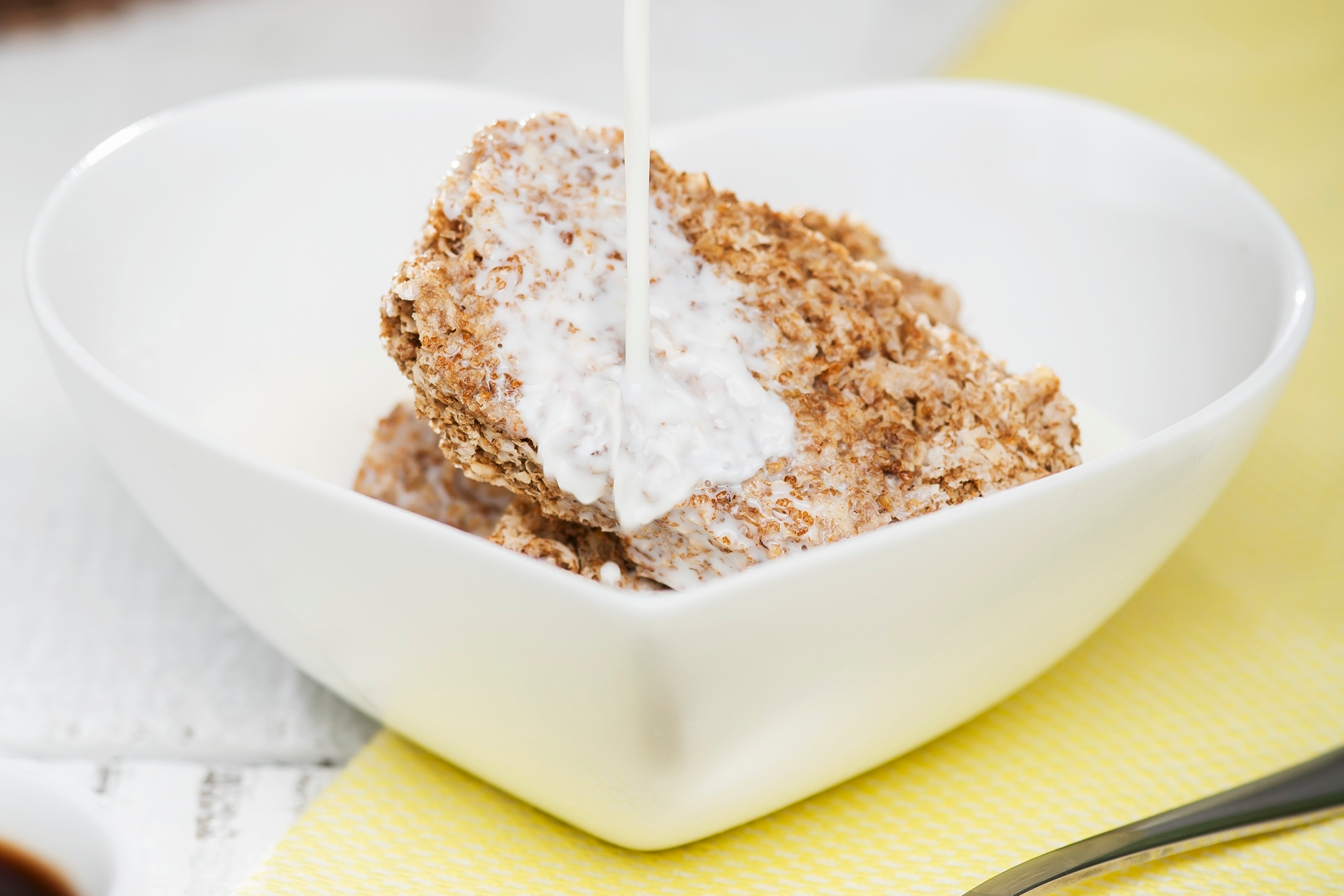Calories in Weetabix: Is this popular breakfast choice really good for you?
Weetabix has long been a firm family favourite. But are they really a healthy choice? We took a closer look...


Parenting advice, hot topics, best buys and family finance tips delivered straight to your inbox.
You are now subscribed
Your newsletter sign-up was successful
Is Weetabix a healthy choice, are the calories in Weetabix and the fat content low? We investigate one of the nation's favourite cereals.
Out of all the healthy cereals on the supermarket shelf, Weetabix is the one to opt for if you want something quick and filling to eat before heading out the door in the morning. It's such a popular choice that people have even created Weetabix cakes and Weetabix brownies, ideal for low-calorie snacking.
The flaky biscuits – fortified with Thiamin (B1), Riboflavin (B2), Niacin, Folic Acid and iron – are extremely versatile, therefore appealing to people of all ages. Weetabix fans tend to eat them with hot or cold milk, topped with everything from slices of banana to a handful of fresh mixed berries.
Calories in Weetabix
With the recommended serving of two biscuits containing 136 calories, it’s easy to see why those wishing to maintain a healthy lifestyle favour Weetabix.
When 150ml of semi-skimmed milk is added, this rises to around 205 calories - and fits well within new guidelines issued by Public Health England in 2018.
Aiming to help adults stop overeating, the 'One You' campaign encourages individuals to follow a 400-600-600 rule.
The initiative suggests that people should consume around 400 calories at breakfast, 600 at lunch and 600 at dinner. A couple of healthy snacks and drinks are also permitted in-between.
Parenting advice, hot topics, best buys and family finance tips delivered straight to your inbox.

Protein in Weetabix
With more of us looking towards protein-rich foods to maintain our weight and stave off hunger throughout the day, it would be worth considering Weetabix as an option for hungry tummies.
Standard Weetabix offers 4.6g of protein per serving (2 bisks). According to Harvard Medical School, the Recommended Dietary Allowance for protein is 0.8g for every kilogram of our body weight. This means that the average sedentary man would need 56g of protein a day, while the average sedentary woman would need 46g per day. Looking at the numbers, it first appears that Weetabix isn't very high in protein. However, in conjunction with other protein-rich food items, you should be able to reach your daily intake fairly easily.
In 2015, Weetabix launched their protein-focused cereal, Weetabix Protein, which offers 12g of protein per serving.
Fibre in Weetabix
Weetabix also provides children and adults alike with a great source of fibre as they contain 3.8g per portion. This makes it perfect for all those looking to improve their digestion, as well as include more protein and fewer calories in their diet.

According to the NHS, eating a diet that’s rich in roughage has multiple health benefits. The consumption of fibre is associated with a lower risk of heart disease, strokes, type 2 diabetes and bowel cancer. Fibre can alleviate constipation too by helping bind stools so they can pass through the intestines quicker.
Wholegrain in Weetabix
Weetabix is 100% whole grain, an important factor when deciding whether Weetabix is the best choice for you. Foods made with high levels of whole grain have the potential to help prevent early death, according to a research team at Harvard University.
The study found that just one 16g serving per day of wholegrain slashes an individual’s risk of dying by 7%. A portion of Weetabix contains 37.5g.
Keen to inform customers of their products’ nutritional credentials, Weetabix introduced the traffic light labelling system to packaging in 2016.
Weetabix Original and Weetabix Protein are both all-green when it comes to levels of fat, saturates, sugars and salt.

An internationally published digital journalist and editor, Rachael has worked for both news and lifestyle websites in the UK and abroad. Rachael's published work covers a broad spectrum of topics and she has written about everything from the future of sustainable travel, to the impact of the coronavirus pandemic on the world we live in, to the psychology of colour.